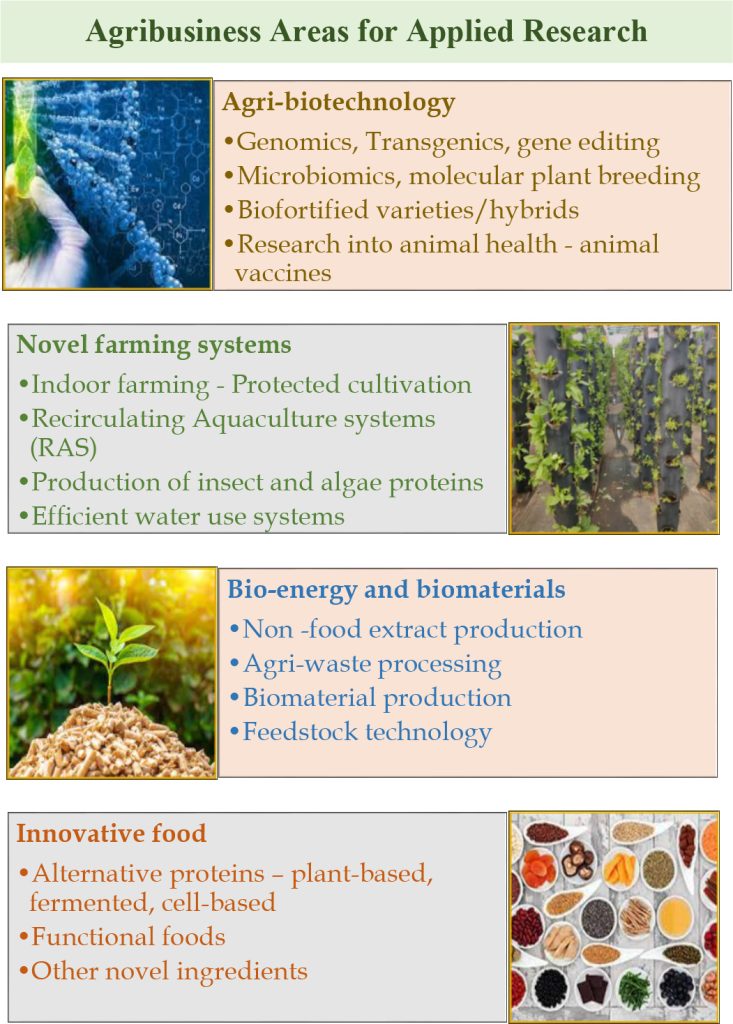
Going beyond digital revolution: Accelerating Applied Research for Transforming Agriculture
The convergence of emerging technologies like artificial intelligence, three-dimensional printing, drones and robotics, and synthetic biology is expected to impact the future of Indian agriculture profoundly. The agribusiness ecosystem is overwhelmed with technologies and solutions that can make farming and agribusiness more efficient and profitable but rarely transform agriculture. Indian start-ups have been heavily investing in digital solutions to provide services to farmers and build efficient supply chains. Are these enough to meet the growing concerns of food security and climate change?
It is estimated that to feed the growing Indian population of 150 crores in 2030 – 32, the demand for food grain will be 350 million tons. Two of the most dominant crops in the country are estimated to see a 6 – 10% drop in yields by 2030 due to climate change with lower protein and micronutrient content in wheat and increased amylase content in rice leading to immense economic and nutritional stress to farmers and consumers, respectively. According to the Economic Survey,  droughts and temperatures extremes are already declining farmer incomes by 4-14% for the key crops and is expected to increase further in the coming decade.
droughts and temperatures extremes are already declining farmer incomes by 4-14% for the key crops and is expected to increase further in the coming decade.
This calls for intensifying applied research-based enterprises to bring about the transformative change in agri-food systems and help supply adequate and nutritious food and environmental sustainability.This can be achieved through investments in advanced technology, research, and infrastructure and extensive ongoing investments in the low-hanging fruits of digital technologies. Research efforts need to be put in across diversified agribusiness areas, including agri-biotechnology, novel farming systems, bioenergy and biomaterials, and innovative foods (See Figure).
Creating and bolstering the agricultural innovation system involves boosting R&D investments in these applied areas in addition to investments in infrastructure translational technologies, building capacities, and strengthening information flows. National and global collaboration-driven R&D will positively impact the production and quality of inputs across the agri value chain. Concentrated investments across these areas will accelerate India to improve the quality of the agri-food value chain for farmers and consumers and help achieve the much-needed paradigm shift and gear up Indian agriculture for the future.
Collective effects of technology will change the face of Indian agriculture over the next decade. This will simultaneously help accelerate the drive towards achieving sustainable agriculture and prepare the sector to adapt and mitigate climate change impacts. It will be strengthened by concerted efforts from various stakeholders to help policymakers bring in required policy-level modification and incentives. Co-ordinated and systematic investments by companies across these areas will help them to deliver the game-changing products for the industry in the coming decade.
Author:

Connect with Authors at: E-mail agribusiness@sathguru.com
 Grow Beyond
Grow Beyond 

